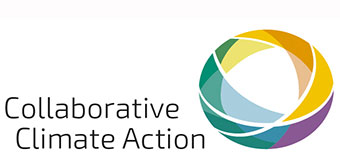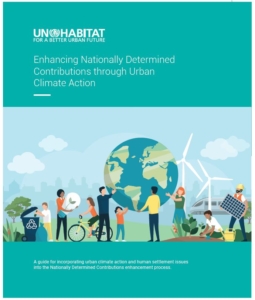Enhancing Nationally Determined Contributions through Urban Climate Action
UN Habitat
The guide ‘Enhancing Nationally Determined Contributions (NDCs) through urban climate action’ is the result of a 6 month collaboration between partners and country representatives, all experts across the urban development and climate change community.
Underlying this collaboration, was the question ‘ if urban areas contribute significantly to global emissions, and our cities are so vulnerable to climate impacts, what can we do to ensure the urban content of national climate actions (NDCs) is increased ?’.
It aims to inspire governments to go further in integrating urban and human settlement issues into NDCs, and effectively integrate the urban development community in the formulation and implementation process.
The guide provides practical opportunities for incorporating urban climate action and human settlement issues into the current NDC revision and enhancement process – whether the process is already underway, or at planning stage. This is structured around two Key Opportunities, each with a set of sub-opportunities:
- Key Opportunity #A: Engage a diverse range of urban stakeholders in NDC planning
Sub-opportunities:
A1. Engage across sectors of all urban-relevant departments/organisations
A2. Engage across all levels of government (national, subnational and local)
A3. Ensure fair and inclusive urban stakeholder representation
A4. Communicate the NDC revision process in a transparent manner
A5. Institutionalise the NDC process beyond this 2020 revision
- Key Opportunity #B: Identify concrete policies and actions for integrating human settlements in the NDC
Sub-opportunities:
B1. Build on existing city climate and resilience plans and actions that are already contributing to NDC targets
B2. Assess alignment with existing urban policy
B3. Prioritise key urban climate opportunities
B3.1 Key Mitigation opportunities
B3.2 Key Adaptation opportunities
B4. Outline a clear finance strategy for each urban mitigation and adaptation opportunity
B5. Allocate responsibility, time frames, monitoring frameworks and budgets
B6. Evaluate technology options that may enhance decarbonisation and resilience of urban environment


